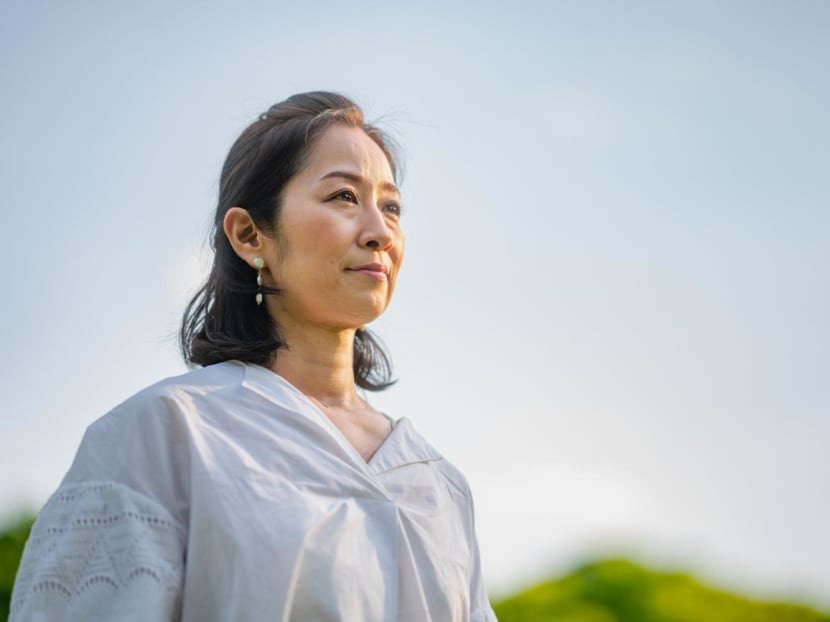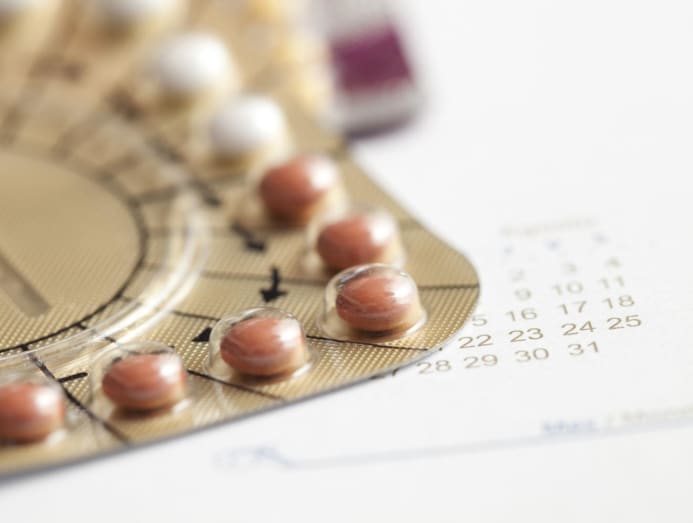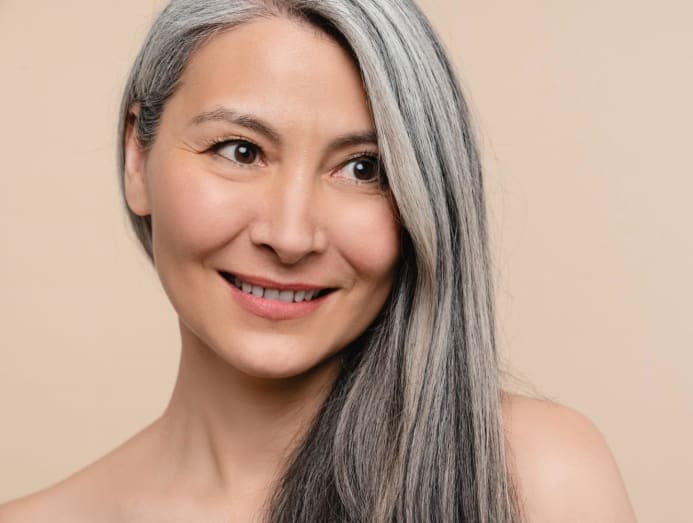Hitting menopause: Is hormone replacement therapy a must and what about the risk of breast cancer?
Prescribed medication can help alleviate a woman’s menopause symptoms by replacing the decreasing levels of oestrogen in the body. We find out about the advantages and risks of hormone replacement therapy in this instalment of CNA Women’s series on menopause.

Women in their late 40s should start seeing their gynaecologist once a year, to get advice on perimenopause and menopause symptoms and possible treatment for them. (Photo: iStock/recep-bg)
It may feel like you’re going through your own personal hell – as Samantha Jones did in Sex And The City 2 – when dealing with menopause symptoms, but doctors say it is not the proverbial death sentence.
“Most of these symptoms are transient and will eventually go away,” said Dr Anupriya Agarwal, senior consultant obstetrician and gynaecologist at Mount Elizabeth Hospital.
To help you manage your menopause journey better, she encouraged women to visit their obstetrician and gynaecologist every year, once they hit their late 40s. Your doctor can look out for symptoms of perimenopause and menopause, assess any abnormal bleeding, and discuss treatment options, where necessary.
Once menopause symptoms have stabilised, such checkups can be reduced to once every two to three years, Dr Agarwal added.
It’s worth noting that every woman experiences menopause differently. While some may seemingly breeze through it with nary a hot flush or mood swing, others may suffer more severely, and may benefit from medication.
“For women with more severe symptoms, prescribed medications can help alleviate these symptoms by replacing the (decreasing) hormone oestrogen in the body,” said Dr Nau’shil Kaur Randhawa, from the Department of Obstetrics & Gynaecology at the National University Hospital (NUH).
Related:
WHAT’S HORMONE REPLACEMENT THERAPY?
Dr Choo Wan Ling, consultant obstetrician and gynaecologist at Choo Wan Ling Clinic for Women, pointed out that menopause is a “normal phase of life, nothing unusual”.
As such, it’s not a disease that needs to be treated or fixed. Medication then, is seen as an attractive option, though not a necessary one, in order to maintain a woman’s quality of life over a longer lifespan.
When it comes to medication, hormone replacement therapy (HRT), which has been used for several decades, remains the gold standard. And with continued research, HRT has become more patient-friendly, delivering good results and with the least side effects, Dr Agarwal said.
Most women would be given a combination of two hormones – oestrogen and progesterone.
The latter serves to “protect the uterus from endometrial cancer,” she explained, even though it’s often responsible for many HRT side effects, such as acne and depression, that women experience.
Women who have had a hysterectomy – surgery to remove the uterus – are prescribed oestrogen-only HRT, said Dr Randhawa, and it’s a safe option for women under 50.

HRT can come in various forms. These range from oral tablets to gels, sprays and even vaginal or intrauterine delivery systems, said Dr Agarwal.
And there are two types of HRT, said Dr Choo – synthetic and bioidentical.
Synthetic HRT comes in fixed dosages and is easy to consume, she explained. “It comes usually in neat packets of one pill a day with a long expiry date.”
Bioidentical HRT is “individually concocted with different dosage depending on your individual needs, and comes with a short expiry date as it is freshly made each time”. Dr Choo said its benefit is its reduced side effects.
When it comes to determining the best HRT option for you, an individualised approach is recommended, said Dr Agarwal. It allows the doctor to determine if your HRT medication should be a short or long course.
The symptoms should pass after a few weeks of your starting HRT. If they persist, ask your doctor if you can switch to a different method of taking your HRT, change your current medication or lower the dosage.
COMMON SIDE EFFECTS OF HRT
BOTH OESTROGEN AND PROGESTERONE CAN CAUSE:
- Breast tenderness or swelling
- Headaches or migraines
- Vaginal bleeding
OESTROGEN CAN CAUSE:
- Bloating
- Leg cramps
- Indigestion
PROGESTERONE CAN CAUSE:
- Mood swings
- Depression
- Acne
- Abdominal pain
- Back pain
DO YOU HAVE TO TAKE HRT FOR LIFE?
Most women who use HRT require it for short-term symptom relief, varying from a few months to several years.
“Regular consultations with a doctor are essential to review the need for continuing HRT,” said Dr Randhawa, and there are some women for whom long-term use is needed to help them cope with symptoms.

In fact, Dr Agarwal said that HRT is most beneficial for women in their late 40s to early 50s. “Usage after 60 years of age is only in exceptional circumstances,” she added.
THE BENEFITS OF HRT
The main advantage of HRT is to relieve menopausal symptoms, and it can be a lifesaver for women whose menopausal symptoms are severe and make it difficult for them to go about their daily lives, said Dr Agarwal.
For instance, hot flushes can come at random moments, making it embarrassing when meeting people, brain fog can disrupt your work, and depression and mood swings can have an impact on your family. Not to mention night sweats, mood swings, vaginal dryness and a reduced sex drive.
In fact, Dr Randhawa said that “troublesome hot flushes can be alleviated very quickly with HRT, which has benefits especially for women who are less than 50 years old”.

HRT also offers long-term health benefits. It can protect the heart, prevent dementia and osteoporosis, improve skin texture and prevent vaginal atrophy, said Dr Choo. Vaginal atrophy is the thinning, drying and inflammation of the vaginal walls as a result of the body producing less oestrogen.
KNOWING WHAT THE POSSIBLE RISKS ARE
While the benefits of HRT often outweigh the risks, it is not completely risk-free. “The risks are usually very small, and depend on the type of HRT you take, how long you take it for, and your own health risks,” said Dr Agarwal.
Your doctor can advise you on the type, dose and duration of HRT, weighed against your individual risk factors, that would work for you, said Dr Randhawa.
Here are three areas you should pay attention to:
1. Breast cancer
The combination of oestrogen and progesterone in HRT is a known breast cancer risk, said Dr Randhawa. “The risk is higher the longer it is used for, but the risk reduces when HRT is stopped,” she added.
There is also “little or no change” to a woman’s breast cancer risk if she takes oestrogen-only HRT, Dr Agarwal added.
2. Blood clots
HRT is associated with an increased risk of blood clots, which can include deep vein thrombosis, said Dr Choo.

Interestingly, the increased risk happens when HRT is taken in tablet form. “This risk is reduced if HRT is used as a patch or gel because the hormones that are absorbed through the skin have a reduced effect on the blood clotting mechanism,” explained Dr Randhawa. “The drug does not go directly to the liver, unlike with orally consumed medications.”
3. Heart disease and stroke
Some studies have found an increased risk of heart disease and stroke in women who are on HRT, but Dr Agarwal said this is not the case if the woman starts HRT before the age of 60.
In fact, a 2022 study found that starting HRT before 60 did the opposite – it reduced the risk of mortality and cardiovascular disease.
POSSIBLE ALTERNATIVE TREATMENTS
There are women who cannot use HRT because of individual risk factors. And there are those who want to consider non-hormonal options, such as oral supplements like soya, evening primrose oil or black cohosh extract.
Alternative therapies such as homeopathy and Traditional Chinese Medicine (TCM), including acupressure or acupuncture treatments may also be considered.
However, Dr Randhawa advised women to exercise caution as such alternative therapies “do not currently have sufficient data to determine their safety profile and may interact with other medicines”, and that more research is required for any definitive results.
CNA Women is a section on CNA Lifestyle that seeks to inform, empower and inspire the modern woman. If you have women-related news, issues and ideas to share with us, email CNAWomen [at] mediacorp.com.sg.








